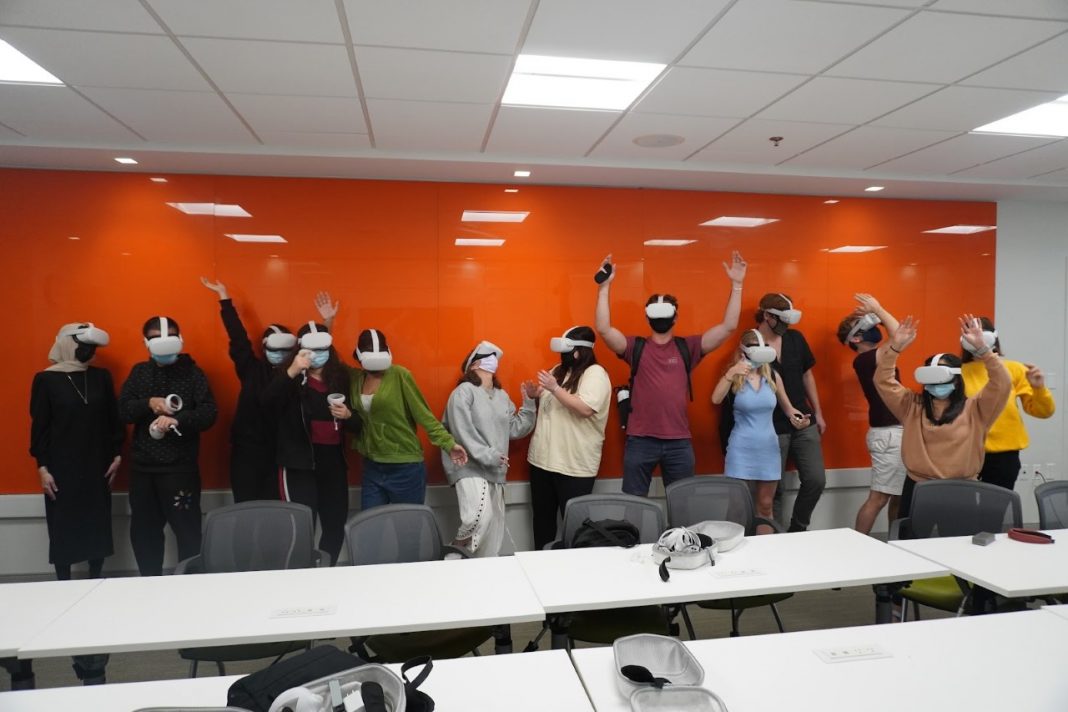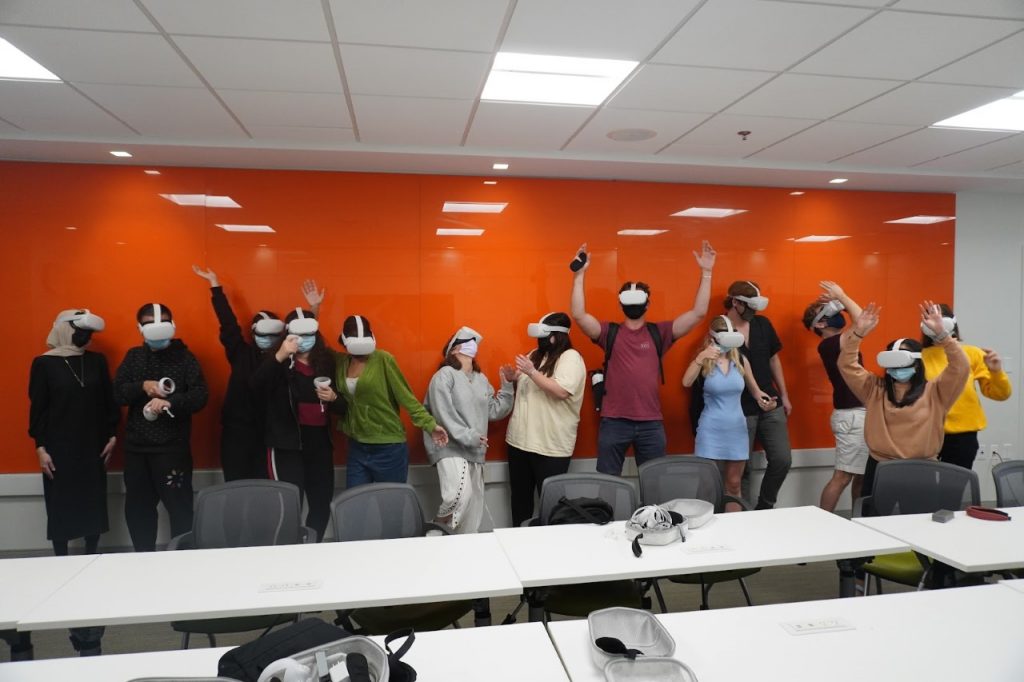

While most virtual classes have been held over Zoom since the start of the coronavirus pandemic, one class in the University of Miami’s College of Arts and Sciences is using a different modality: the MetaVerse.
“Religion and Sacred Space in the Era of Virtual Reality and Artificial Intelligence” began last Thursday. Instead of the typical classroom setting, the class is taught in the MetaVerse.
“Religion is really fundamentally appropriate to the metaverse,” said William Green, a professor of religion and one of the professors for the course. “The class takes advantage of the new technology.”
The class encompassees three different subjects: religion, architecture and computer science. Teaching the course in a virtual reality setting helps intertwine the three focuses of the class.

“The students in architecture help design the class, the students in interactive media help with the user experience and the religion students are content experts,”Kim Grinfeder, another professor for the course focusing on virtual reality, said.
During the first class, students received their Oculus 2 virtual reality headsets and had an orientation with the product. Now that the students have their headsets, classes will be held remotely, taking place solely in the MetaVerse.
“It was bizarre to be in the same room but also not in the same room,” Grinfeder said. “It is best to discuss virtual reality in virtual reality.”
As the class progresses, students will use the headsets to travel across the world to observe religious experiences in 3D instead of 2D. Some of these experiences include a Hajj, a Muslim pilgrimage to the city of Mecca or a Christian Baptism.
“There is a notion of space and place,” Green said. “We can now experience places that you can’t go to easily.”
During the first class, most students quickly became accustomed to the intriguing technology but there were some initial issues with the headsets. Some students were experiencing eye strain and headaches making it so that they had to step out of the MetaVerse and back in to reality
“Students would say ‘I need five minutes,’ take the headset off and just set it down and chill for five minutes,” said Matthew Rossi, a junior computer science major who is the teaching assistant for the course. “But VR endurance, as some people might say, is just something you build up naturally by using it.”
As for the future of the MetaVerse, Green believes more classes will use virtual reality as the technology advances and new virtual reality tools are created.
“Technology develops how people learn and how people teach,” Green said. “Computers are second nature and already virtual reality will be for many students in the future.”






